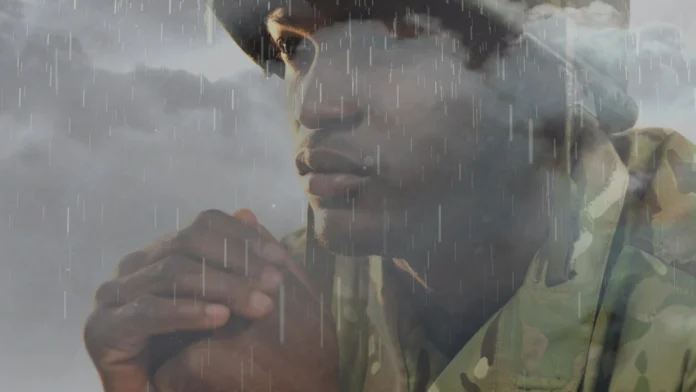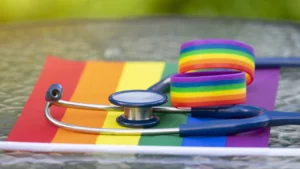Veterans and first responders run into situations that the rest of us flee from. They’re there when the stakes are high and the cost is great. Their job description calls for courage, service and sacrifice not just sometimes. All the time. And because of that, veterans and first responders in need of mental health counseling often require specialized care.
But veterans and first responders also experience the worst that humanity can inflict or endure. They inevitably experience trauma. Often, they experience multiple traumas.
Therapy.com is user supported. We receive a commission fee from purchases made through BetterHelp links.
Learn More
Treatment programs for first responders and veterans mental health are designed to help them recover in the aftermath of trauma. This includes customized care for current and former military personnel, law enforcement, firefighters and emergency personnel who are experiencing post traumatic stress disorder (PTSD), depression and other mental health concerns.
Mental Health Issues for Veterans
Veterans and first responders encounter traumatic events on a regular basis. Whether they’re facing combat or they’re exposed to catastrophic illness and injuries at home, our war fighters and emergency workers see and experience things no human should.
All this can take a devastating toll on their mental health. Those who spend much of their time protecting and saving the lives of others may be reluctant to take care of themselves.
Without the proper care, unresolved trauma can lead to serious mental health challenges According to the Substance Abuse and Mental Health Services Administration (SAMHSA), the most common first responder and veterans’ mental health disorders include the following.
Depression
Major depression occurs in veterans and first responders for many reasons, like watching others lose their lives or suffer severe injuries or illness, being separated from loved ones while deployed or on duty and experiencing survivor’s guilt. Symptoms of depression may include:
- Sadness
- Changes in weight
- Loss of interest in activities
- Fatigue
- Feelings of worthlessness
- Trouble concentrating
- Body aches and pains
Depression can impact your physical and mental health. Working with a first responder or veterans’ mental health professional who understands your unique needs is essential.
Post-Traumatic Stress Disorder (PTSD)
PTSD can occur in anyone who has survived a traumatic event. Veterans who have experienced combat and may have lost fellow brothers and sisters in arms and first responders who witness accidents, sickness and death may have higher incidences of PTSD within their groups. They may experience symptoms like:
- Nightmares
- Flashbacks
- Intrusive thoughts
- Sleep disturbances
- Hypervigilance or constantly assessing danger
- Avoidance of reminders
Multiple effective therapies can help you cope with PTSD. The sooner you begin treatment, the less likely your symptoms will worsen.
Therapy.com is user supported. We receive a commission fee from purchases made through BetterHelp links.
Learn More
Substance Use Disorder
Veterans and first responders may attempt to self-medicate by misusing drugs or alcohol to cope with the intense emotions and painful effects of unresolved trauma. While substances may offer temporary relief at first over time tolerance, dependency and addiction may occur. Substance use disorder is typically accompanied by symptoms like:
- Not being able to control how much alcohol or drugs you consume
- Not being able to stop using, even after many attempts
- Worsening physical and mental health problems
- Loss of relationships
- Inability to function at work, home, school or socially
- Overdose or death
Alcohol tends to be the most misused substance among veterans and first responders. Others include opioids, stimulants, and sedatives.
Suicide or Suicidal Ideation
Suicidal ideation may occur in veterans and first responders experiencing unresolved trauma and the outcomes can be tragic.
It’s estimated that as many as 24 veterans die by suicide each day. And according to a 2018 SAMHSA bulletin:
Because of the significant risk of suicide and suicidal ideation among veterans and first responders, it’s critical to identify the signs:
- Talking about suicide or feeling hopeless
- Searching online for ways to commit suicide
- Isolating from others
- Giving away personal belongings
- Aggression
- Fatigue
- Increasing use of alcohol or drugs
- Loss of interest in activities one once enjoyed
The Impact of Unresolved Trauma
The impact of trauma, stress and PTSD on veterans, law enforcement, firefighters, and emergency personnel can produce chronic symptoms that worsen over time.
Signs of unresolved trauma include feeling trapped or unable to escape, hyperarousal and hypervigilance and altered cognitions and moods.
Therapy.com is user supported. We receive a commission fee from purchases made through BetterHelp links.
Learn More
For veterans and first responders, seeking therapy and counseling for emotional well-being is crucial. Fortunately, many treatments are available. The first step in getting treatment is to meet with a licensed mental health professional who will conduct a comprehensive assessment.
Assessments help determine which treatments will best help you overcome your symptoms. You then create a treatment plan that may include medications, behavioral therapies, alternative or holistic treatments, family therapy, support and aftercare services.
Mental Health Services for Veterans
The sooner a veteran or first responder seeks mental health services, the sooner they can learn how to relieve adverse symptoms. You don’t have to wait until the symptoms become noticeable, either.
If you have experienced trauma, working with a mental health professional can help you prevent some symptoms from arising.
Many veteran mental health services are available including pharmacological and non-pharmacological treatments, individual and group veterans counseling and veterans’ support groups.
Medications
Medications can often help treat symptoms of depression, anxiety, and PTSD and help individuals recover from substance use disorders. Medication options include:
- Selective Serotonin Reuptake Inhibitors (SSRIs) or antidepressants
- Selective Norepinephrine Reuptake Inhibitors (SSNIs), also antidepressants
- Monoamine Oxidase Inhibitors (MAOIs), antidepressants
- Naltrexone, acamprosate, or disulfiram for alcohol withdrawal and management
- Naltrexone, buprenorphine, and methadone for opioid withdrawal and management
Every client is unique and medication is not recommended for everyone. Some people will benefit more from non-pharmacological treatments.
Therapies for Veterans
Researchers have been studying behavioral therapies for years, and they have been proven effective in treating mental health symptoms.
Therapy.com is user supported. We receive a commission fee from purchases made through BetterHelp links.
Learn More
Therapies most often used to treat veterans and first responders include:
- Exposure therapy (ET)
- Cognitive behavioral therapy (CBT)
- Trauma-focused cognitive behavioral therapy (TF-CBT)
- Eye movement desensitization and reprocessing (EMDR)
- Motivational enhancement therapy (MET)
- Commitment and acceptance therapy (CAT)
Combining medication and therapy may help you reach your goals faster than just one mode of treatment. These treatments are provided during individual counseling, group therapy, and specialized PTSD treatments. Your therapist may recommend family or couples therapy, 12-step facilitation groups and alternative treatments.
Accessing veterans counseling is a simple process. You can contact a local treatment center specializing in serving veterans and first responders. They will employ a psychiatrist who can determine if you can benefit from medication and licensed therapists to provide mental health services.
Most local treatment facilities have 24/7 call centers so you can reach out anytime for help. You can also contact a treatment provider online through their contact form or start an online chat with a team member.
Specialized Therapy for First Responders
The need for therapy for first responders, including police officers, firefighters, EMTs, and paramedics, is tremendous and should begin with preventive care. After a traumatic event, first responders should be given therapies that improve coping skills and increase social connectedness.
These would be followed by ongoing mental health therapies tailored specifically to their job and job related experiences.
Suicide rates among firefighters are high. Around 47% have suicidal thoughts after experiencing traumatic events regularly. Some reports state firefighters are 72% more likely to commit suicide than other emergency workers.
Addressing firefighter mental health must begin with preventive care and continue with evidence based therapies. Otherwise the emotional toll of emergency response work may become too hard to manage.
Therapies that benefit firefighter mental health and other first responders should include the following:
- Mindfulness based stress reduction
- Mindfulness based cognitive behavioral therapy
- Post trauma debriefing
- Interpersonal psychotherapies
The benefits of first responder therapy include reducing stress and having an easier time recovering after a trauma. First responders will also utilize social support, build resilience, better regulate emotions, deter intrusive thoughts and avoid unhealthy coping methods.
Therapy.com is user supported. We receive a commission fee from purchases made through BetterHelp links.
Learn More
Treatment Options
Multiple treatment options exist to help you overcome the effects of trauma. Marriage and equine assisted therapy are two treatments you may not think you need but are incredibly beneficial for veterans and first responders.
Strengthening Relationships Affected by Trauma and Service Related Stress
Trauma not only impacts your mental health but it can also impact your marriage. Mental health symptoms can make it challenging to connect with your spouse. They want to help you heal but you can’t tell them how to help. This can leave them feeling alone and rejected.
PTSD and other mental health disorders can lead to family arguments, violence, dissatisfaction, sexual dysfunction and more. Displaced anger, avoidance, emotional numbing and withdrawal from family members ruin the dynamics.
Specialized couples therapy for veterans and first responders can be critical in strengthening your relationship. Working on issues together often contributes to treatment adherence and better outcomes overall.
Therapies to help strengthen your relationship and support your recovery as individuals and as a couple include:
- Behavioral couples therapies
- Insight oriented marital therapy
- Multi systemic family therapy
- Psychoeducation
- Communication skills training
- Emotionally focused therapies
Marriage and family counseling benefits everyone impacted by mental health symptoms associated with job related trauma. It can help the whole family heal and reconnect, strengthening relationships.
Equine Assisted Therapy for Veterans
Interacting with horses can help people develop nonverbal communication skills, reduce anxiety, lower blood pressure and reduce symptoms of mental illnesses. This kind of treatment has been shown to support mindfulness, helping people with PTSD become aware of their emotions.
Horses are highly sensitive to emotional cues which can be highly beneficial for those who have repressed or unresolved trauma. As you become aware of your feelings, you can better process them.
Therapy.com is user supported. We receive a commission fee from purchases made through BetterHelp links.
Learn More
Examples of equine assisted therapies include:
- Therapeutic horseback riding
- Hippotherapy PTSD
- Grooming
- Breaking
- Groundwork
- Horse care
Equine therapy is just one example of animal assisted therapy that has been shown to be effective for veterans and first responders. Don’t give up if you don’t feel working with horses is beneficial. Try working with other animals, like dogs, cats, rabbits or reptiles. Many options exist for treatment today.
Other Alternative Therapies and Holistic Approaches to Mental Health
Alternative and holistic approaches to mental health healing are becoming more popular due to their effectiveness in treating mental health disorders like PTSD in law enforcement, veterans, and other first responders.
Examples of alternative therapies include:
- Acupuncture
- Acupressure
- Diet and nutrition therapy
- Exercise
- Massage
- Biofeedback
- Clinical hypnosis
- Meditation
- Trauma sensitive yoga
- Guided imagery
- Tai Chi/Qigong
- Mindfulness stress reduction
You can determine which alternative and holistic therapies will benefit your treatment progress by working with your therapist. You may also consider alternative therapeutic activities that your whole family can do together.
Crisis Support and Therapy Resources
You can talk to someone about your symptoms by calling the Veterans Affairs Crisis Line. Dial 988 and press 1. A crisis responder will speak with you and connect you with various resources. You can also text them at 838255.
National and local resources for mental health services for veterans and first responders include the following:
- Chat online at https://www.veteranscrisisline.net/get-help-now/chat/
- Vets4Warriors: 855-838-8255 and https://vets4warriors.com
- For law enforcement, Call 1-800-COPLINE (267-5463)
- First Responder Hope Line, Call 866-4FL-HERO
- Lifeline for Vets, Call 888-777-4443
- Military One Source, Call 800-342-9647 or use chat, OCONUS, or VOP to connect
- PTSD Veteran Hotline, Call 877-717-7873
- Stop Soldier Suicide, Call 844-317-1136
- The Real Warriors, Call 866-966-1020
- Women’s Veterans Call Center, 855-VA-WOMEN (855-829-6636) or use the online chat feature
To find a licensed therapist specializing in therapy for veterans, police officers, and emergency responders, contact a community mental health or substance abuse treatment center.
Therapy.com is user supported. We receive a commission fee from purchases made through BetterHelp links.
Learn More
You may also contact individual psychiatrists, psychologists, social workers, marriage and family therapists or licensed professional counselors. You can also search Google or ask for information directly from your county’s behavioral health services department.
FAQs
Veteran mental health services include individual, group, family, couples, pharmacological, and alternative therapies. The first step to receiving services is to complete an evaluation with a licensed mental health professional.
There are two ways to contact the Veterans Affairs Crisis Line: Dial 988, then press 1, or text 838255. A qualified crisis team member will connect you with community resources to help you cope with mental health symptoms.
In first responder therapy, you can learn coping skills to manage, reduce, or eliminate negative symptoms associated with your job or previous traumas. In addition to addressing unresolved trauma, first responder therapy can help you learn valuable coping skills to include anger and stress management, mindfulness and cognitive restructuring.
To find therapy for police officers and other first responders, contact a local treatment center that employs psychiatrists, psychologists and mental health or substance abuse counselors. You can also search online using SAMHSA’s treatment locator.
Therapy.com is user supported. We receive a commission fee from purchases made through BetterHelp links.
Learn More



